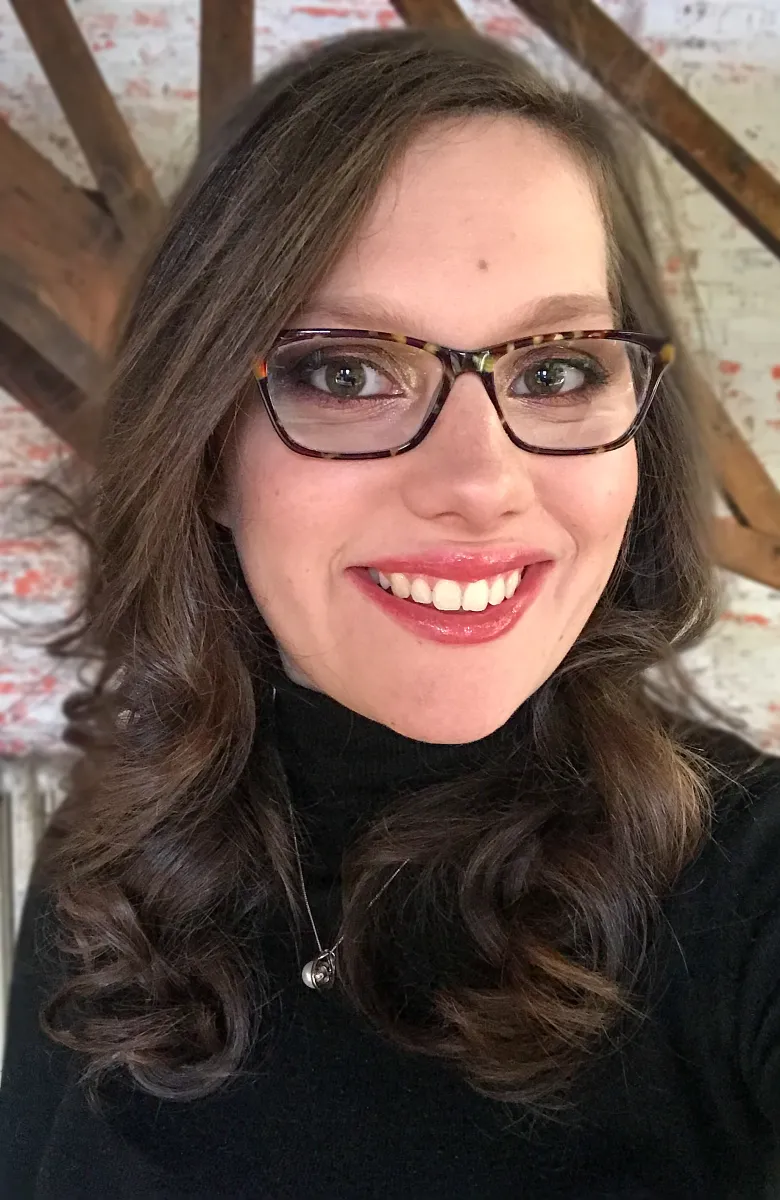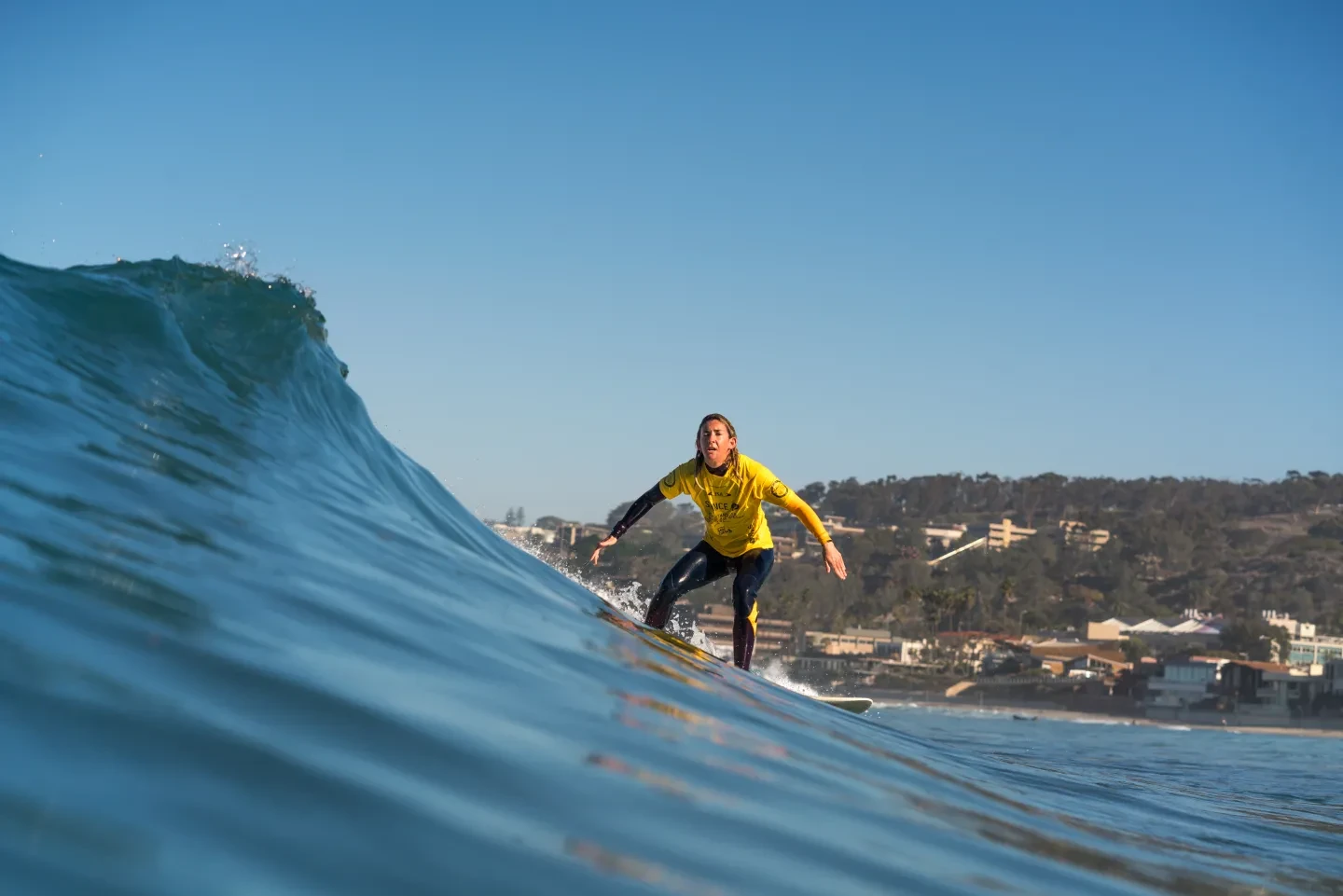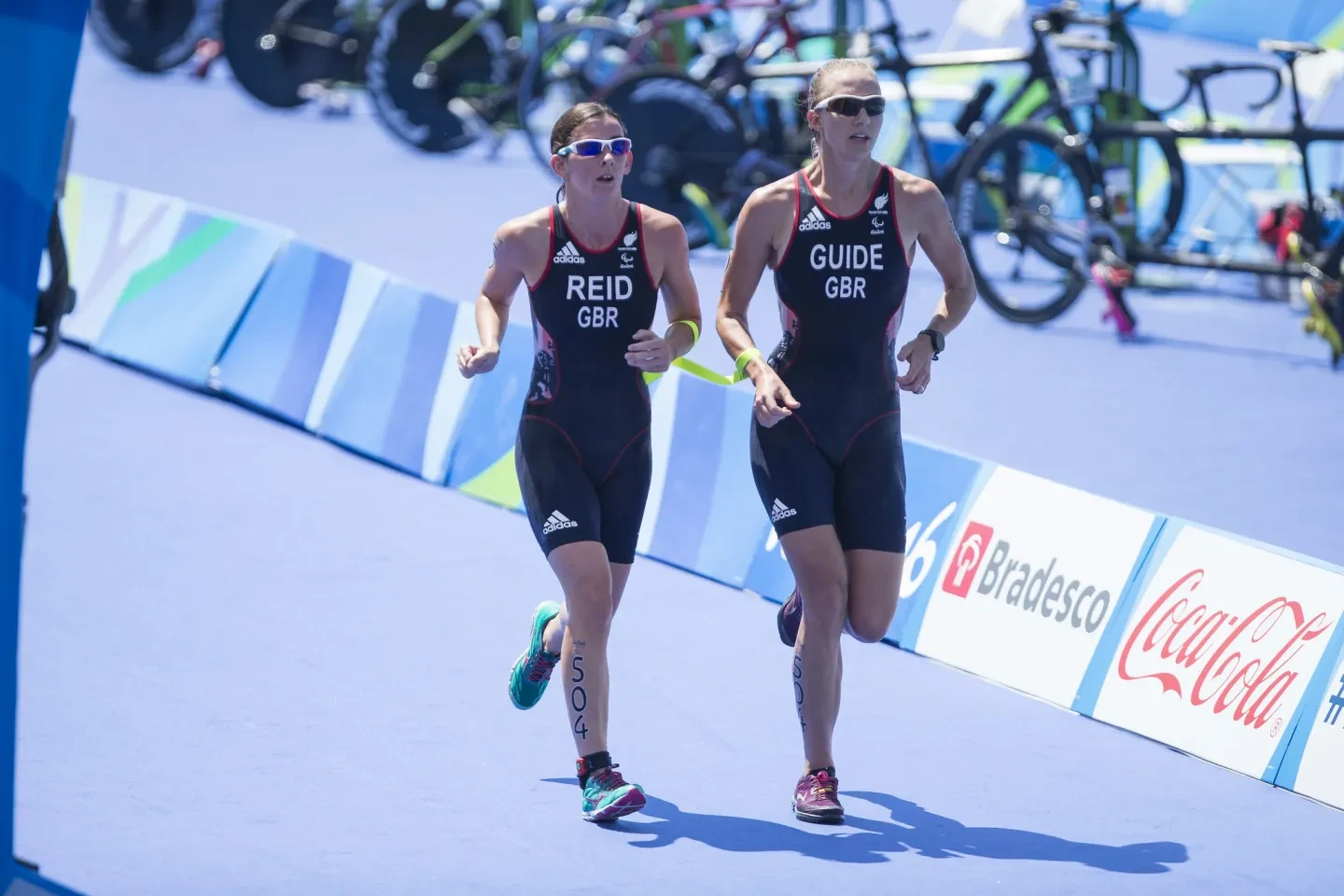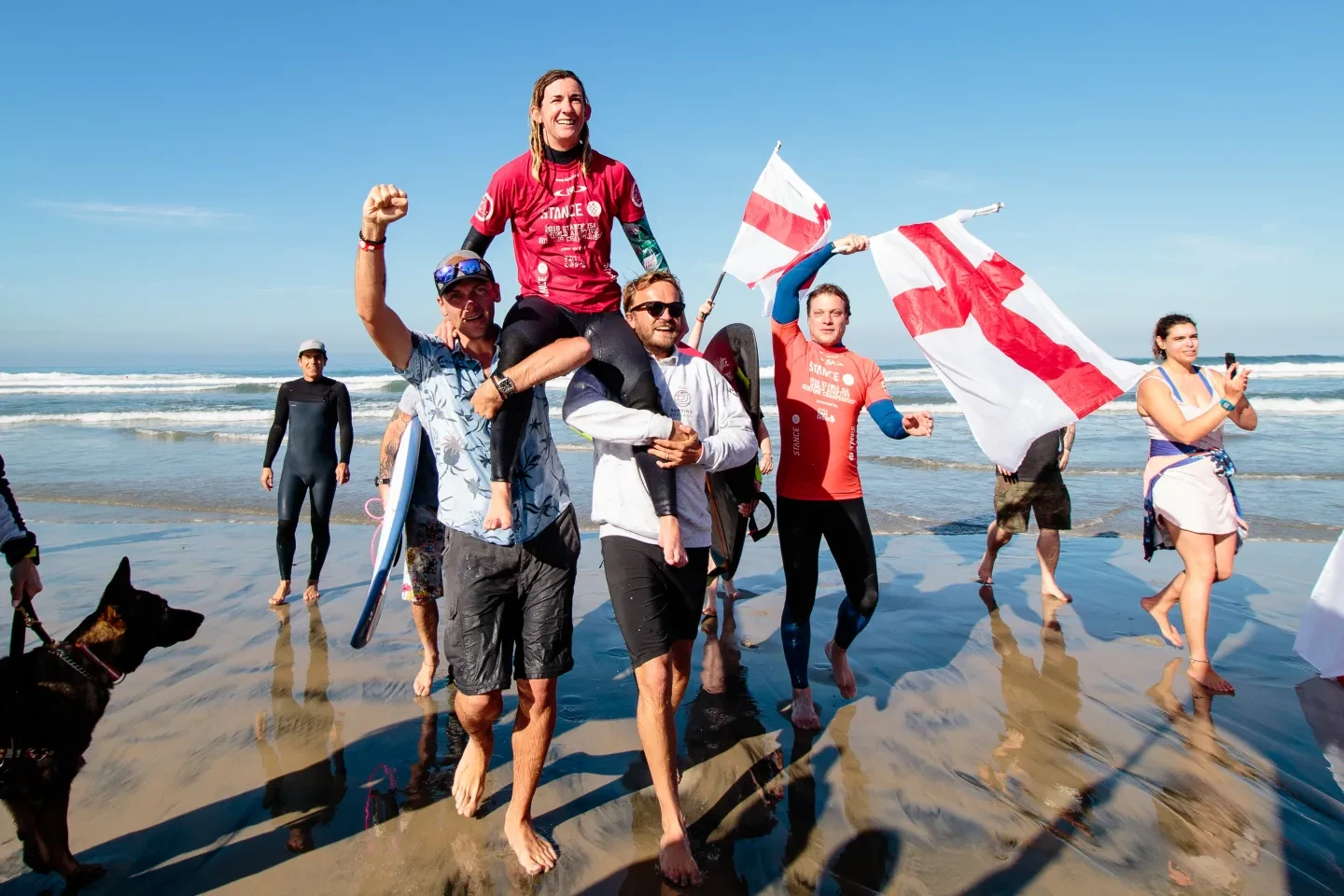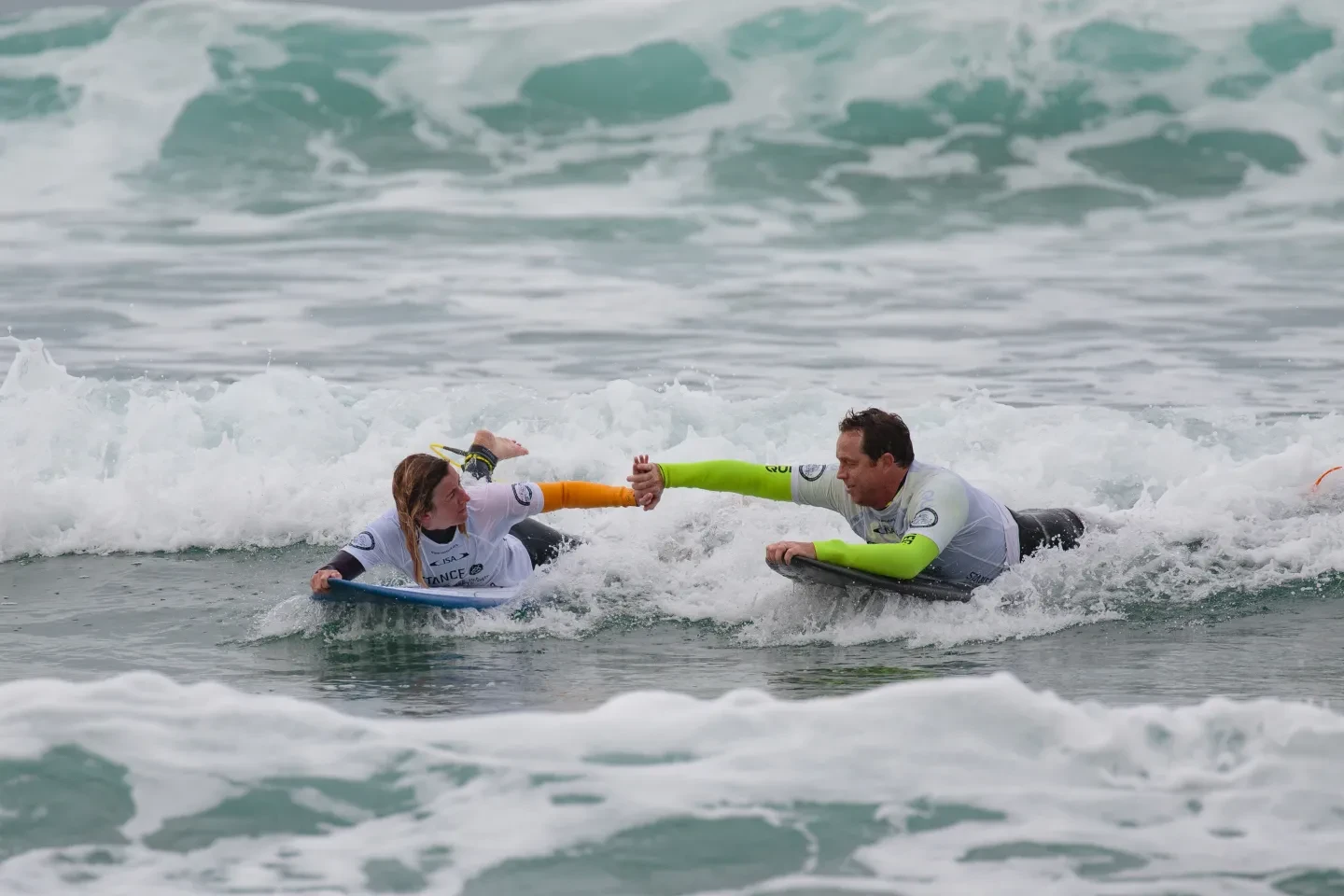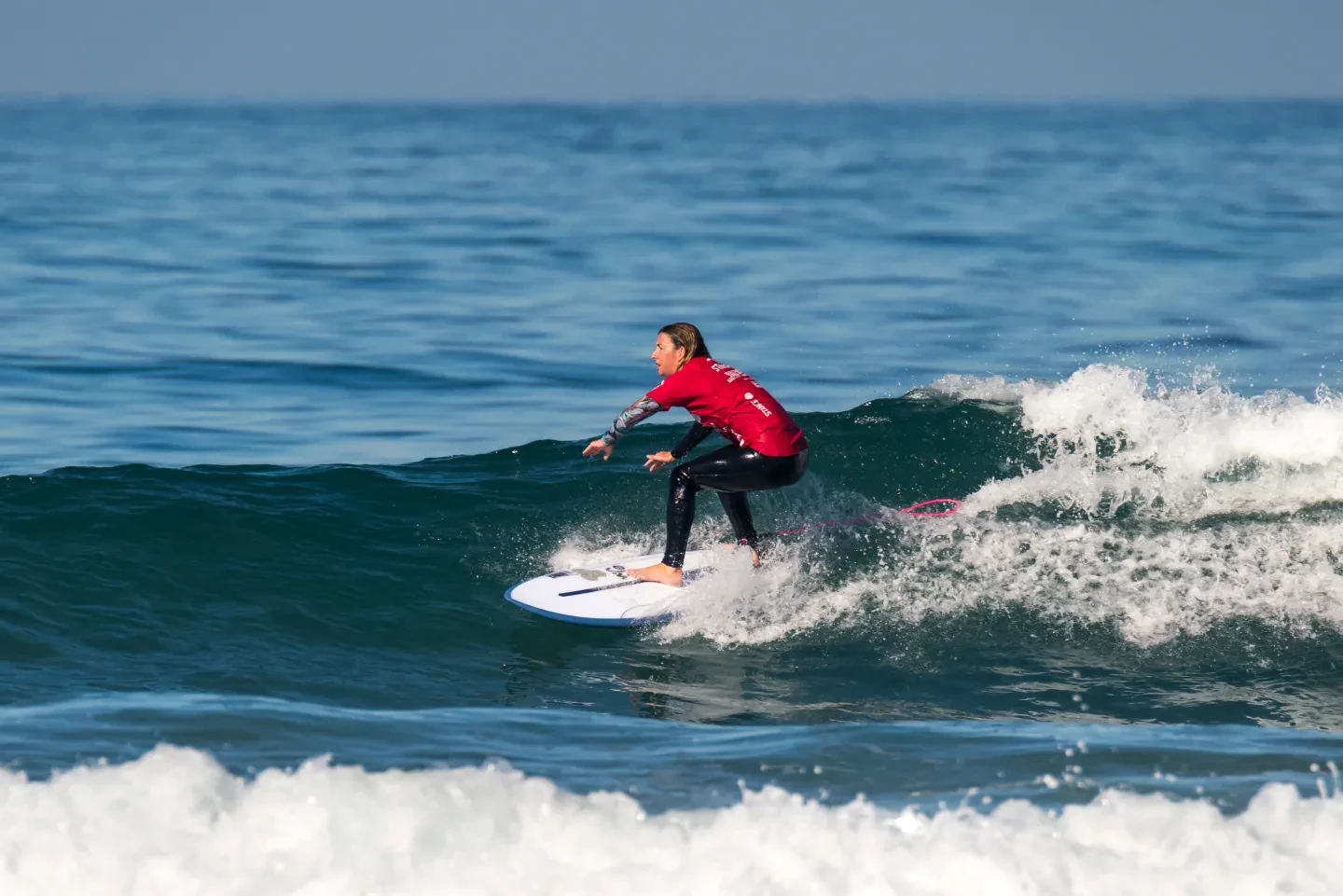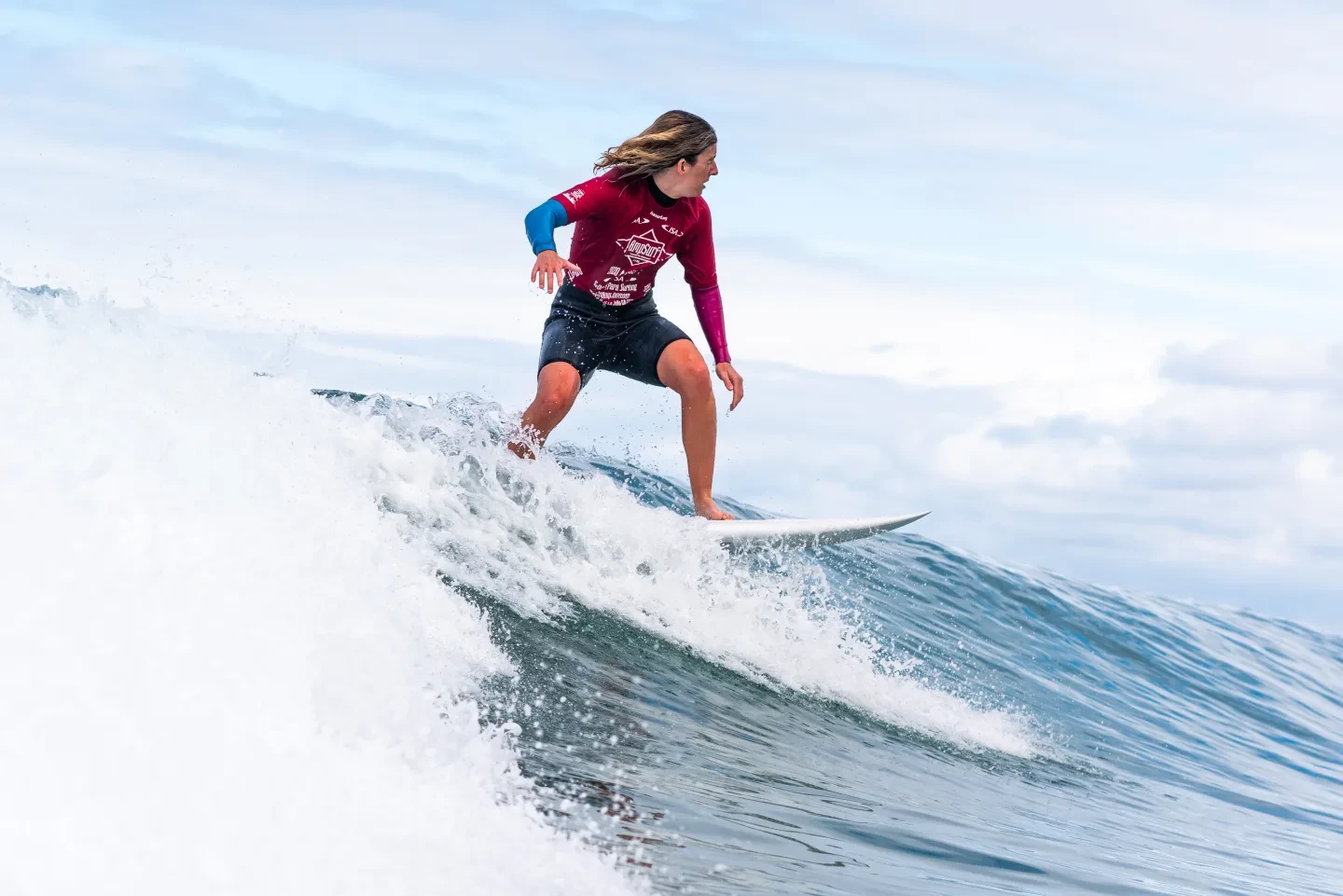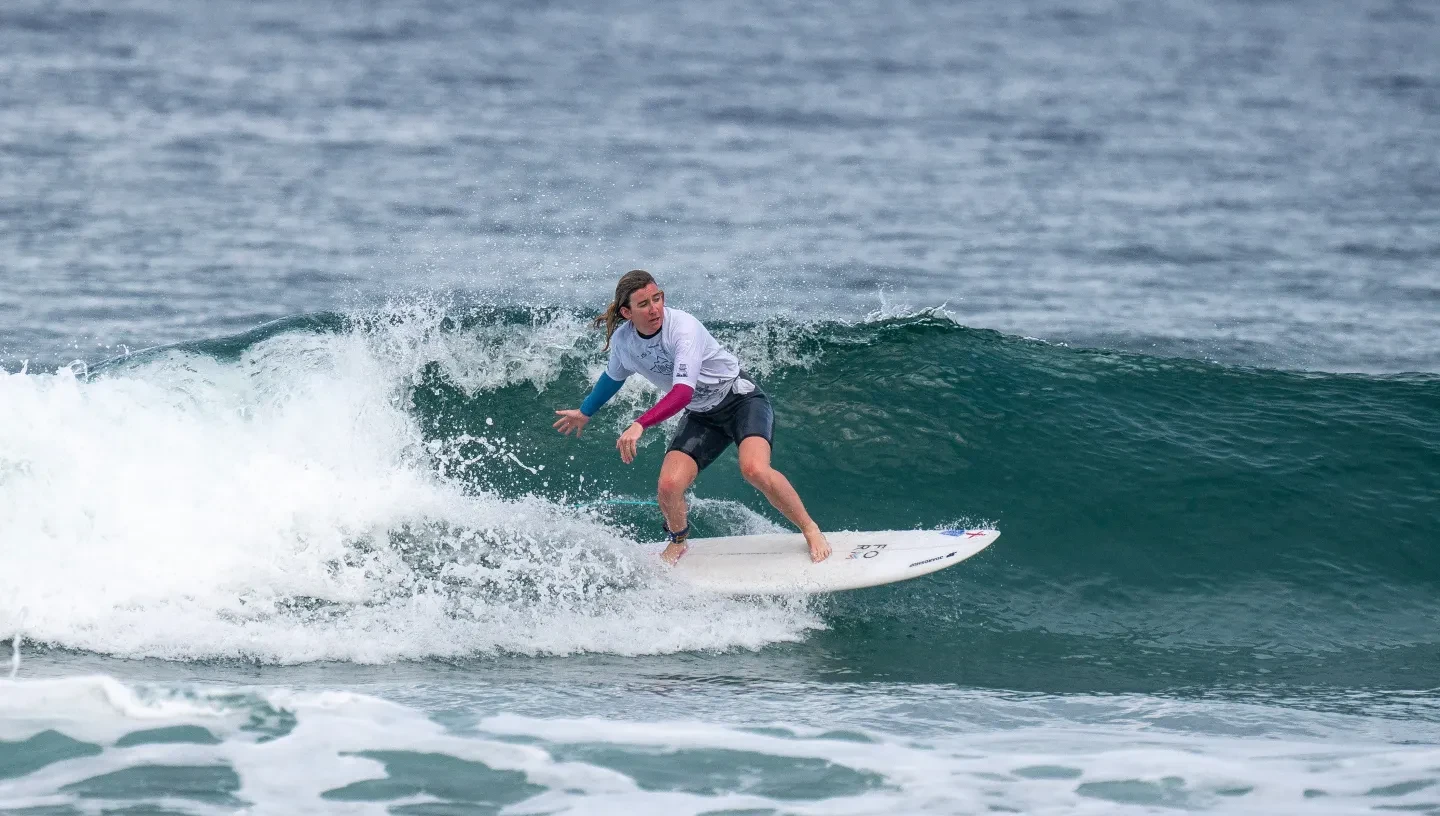
There aren’t many people who achieve elite athlete status across two sporting disciplines, but Melissa Reid is one of them.
A bronze medallist in triathlon at the Rio 2016 Paralympic Games, Melissa became the first ever visually impaired women’s world champion at the International Surfing Association World Para Surfing Championships in 2018 – a title she has since retained twice.
Melissa’s love for sport began in childhood, taking part in activities including cycling and skateboarding. Then, at the age of eight, she discovered surfing. After the first lesson, she was obsessed.
Now looking to retain her world championship title for a fourth time, Melissa’s surfing ambitions are set high. She is determined to raise the ever-growing profile of adaptive surfing and is advocating for the sport to be included in the Paralympics.
From navigating the waves to the mental health benefits of the ocean, Melissa gives an insight into life as an elite athlete.
How did your sporting career begin?
Growing up, my dad encouraged me to take part in sports – he wanted me to learn how to ride a bike and do everything on my own. When I was eight, he signed me up to have a surf lesson with him, and I got hooked straight away.
I took part in surfing competitions, but I was never allowed any help or outside assistance – no one knew that I couldn’t see. I don’t have any vision in my right eye, and I can see about six metres ahead out of my left eye, but there’s not much detail in it: it’s like looking through a very small hole.
Melissa created this diagram to highlight the extent of her vision. Use the slider to compare the difference.
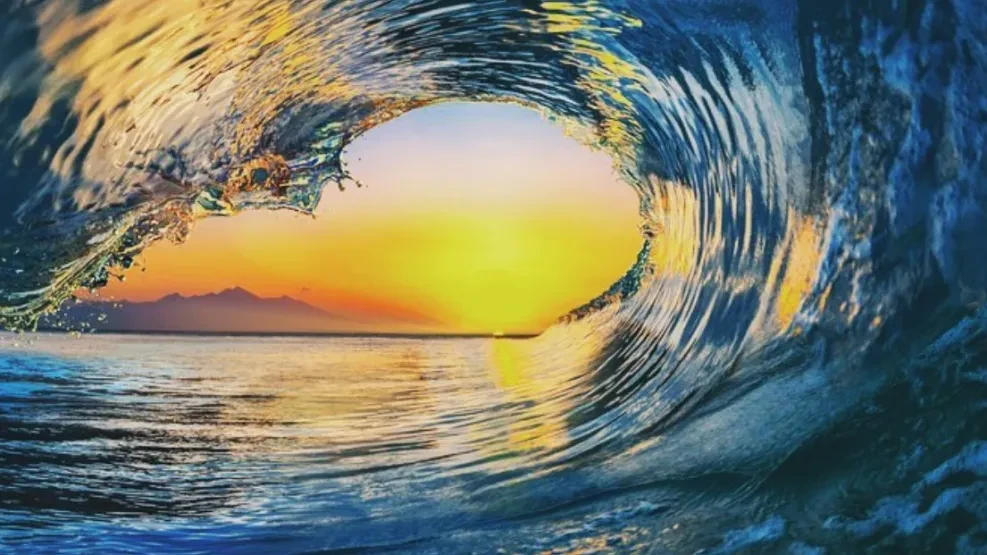

I stopped competing as I got older. Surfing competitions are split into timed heats, but because I wasn’t allowed any help I never knew when each heat started. My dad would try to tell me, but other parents would complain. I just thought, “What’s the point? I’m wasting five minutes not knowing whether I’m allowed to surf or not.”
Instead, I decided to pursue my dreams of becoming a beach lifeguard. I trained for around six years and was offered a job. However, an unsuccessful candidate reported me to the head office for not being able to see and the job was taken away.
To say I threw a hissy fit is an understatement. At the time, my dad was training for an Ironman – a long-distance triathlon which involves a 2.4-mile swim, a 112-mile bike ride and a 26.2-mile run – and I decided to train alongside him. I had done the running and swimming for the lifeguard training, and I was cycling to college every day because I couldn’t afford a bus pass and I wasn’t allowed to drive.
I then decided to enter competitions. In 2011, I turned up to a local race in Cornwall, found someone who would be able to act as my guide, and said: “Do you fancy going to the ITU Triathlon World Championship Series in London and racing with me?”
We rocked up to London on a wild card. We had no expectations whatsoever. We’d only had three goes on a tandem and completed one run and one swim together, so we didn’t know what we were doing! We borrowed a tandem from a bike shop, which can only be described as a granny touring tandem with pannier racks on it. We came second and I was put on the British Para Triathlon Performance Programme in 2012.
For the next few years, we were competing once or twice a month between May and September, taking part in World Cups, World Series, World Championships and European championships. It was very cutthroat.
You won bronze in the triathlon at the Rio 2016 Paralympics. What was the experience like?
I loved Rio. On race day, the temperature was a scorching 36 degrees and the water was calm and crystal clear. We were sat on the beach for 1.5 hours waiting for the race to start because everyone was set off at intervals.
The swim was OK; we didn’t go the wrong way like some of the pairings. I then pushed a bit too hard on the bike ride and burnt myself out, which meant I was dead come the run.
I couldn’t hear a thing running down the blue carpet, which marks the final stretch of the race: the crowds were insane. I managed a sprint finish and then I passed out on the line. I had no idea that I’d come third until we were walking to the podium. The atmosphere was incredible – Rio is one of my favourite places I’ve competed.
How did your transition from triathlon to surfing come about?
In 2017, I had a back injury. I was told by a specialist that I would probably be unable to ride a bike again, and I had to stop triathlon training for the next six to nine months. However, I was allowed to swim and surf.
I entered a competition in Newquay for adaptive surfing, which is geared towards those with additional needs, and I thought I might be able to make some friends and find people to go surfing with. I turned up not knowing anything, and after the first heat I was invited to represent England at the International Surfing Association World Para Surfing Championships in California.
I was eventually given the all clear to start training again so I balanced triathlon and surfing for a few years. For me, I was at my fittest – both physically and mentally – when doing both sports.
But just a few weeks before the Tokyo 2020 Paralympic Games, my back relapsed. I was only allowed to do triathlon training for 20 minutes a day, and as soon as I would get off the bike I couldn’t feel my legs, which made running hard. I placed seventh in the Paralympics, and because I didn’t podium, I was taken off the programme and lost all funding.
It’s difficult to say whether it was a challenge balancing both sports. For me, triathlon felt similar to a job and surfing was almost like a hobby that I would do after work. Surfing gave me that enjoyment outside of the elite world of triathlon. It was fun and competitive, and I was able to be in the sea, a place where I’m my happiest.
In 2022, I retired from triathlon and I’m now working to take my surfing to the next level. I want to push adaptive surfing and get everyone to realise it’s not just as good as the surfing in the Olympics, it’s ten times better – especially when you see how people navigate the waves with the disabilities they have.
How you navigate the waves?
A lot of how I navigate is done by feel. It helps if I have someone in the water with me telling me when to paddle, how far away the wave is and if it’s breaking left or right. I’m not totally blind so I know a wave is coming when everything gets darker. I also feel the suction of the water being sucked out to sea.
Wave pools such as The Wave in Bristol are incredibly helpful for blind people. Because the waves are consistent, I’m able to fine tune my technique, which I can use when I surf in the sea. I mostly surf in Cornwall, particularly in Porthtowan, Newquay and Gwithian.
What are competitions like?
Adaptive surfing is probably one of the fastest growing sports on the planet.
The competitors are divided into various categories, from surfers who ride in a sitting or kneeling position to surfers with a visual impairment.
Each heat is around 20-30 minutes long, and we perform a maximum of up to 15 waves, each scored out of 10. To achieve a high score, you need to perform the most aggressive moves at the critical part of the wave: the point where it starts to break. The scores from your highest two waves are then combined to create an overall total.
When I compete, I’m accompanied by a guide. I’ve been working with Matt Harwood since 2018. Even though we don’t train together – we don’t live anywhere near each other – we have a very similar mentality to how we like to compete.
We go into each competition with three or four plans depending on the waves, and Matt will then pick the waves I go for. His surf knowledge for wave selection is brilliant.
When a wave is approaching, Matt will tell me everything I need to know: whether it’s a steep take off or not, and if it’s located left or right. He will then say, “Yes, yes, yes” or “No, no, no”, depending on whether he wants me to go for it.
For me, the community aspect of adaptive surfing is very important. Everyone is there to progress the sport and they want everybody to do as well as they possibly can. It’s one of the few sports where you have elite athletes and total beginners in the same venue. We’re campaigning for the sport to be in the LA 2028 Paralympic Games, but there’s no funding for it.
You also run your own company, Out of Sight. How did it start?
I started Out of Sight because I want to give people with less visible disabilities the opportunity to take part in various activities, from sport to coaching.
Throughout my career, I’ve struggled to receive backing and sponsorship because my disability isn’t obvious. Despite my sporting achievements, I still don’t receive any financial support.
I want to change this attitude towards disability, and ensure that people with 'out of sight’ disabilities, from autism spectrum disorder to anxiety, are given the chance to take part in something they didn’t think they could participate in.
What does the ocean mean to you?
It's easy: the ocean gives me freedom. It’s the only place where I feel equal to everybody else.
On land, I get so isolated by not being able to drive, but as soon as I hit the water, I’m independent, I’m free.
This is why I get so angry about issues like sewage pollution in our oceans. For a lot of people, the sea is their workplace, it’s their medication – even the NHS now prescribes surfing to young people who are struggling with their mental health. When raw sewage is pumped into the ocean, people can no longer go in, negatively impacting their livelihood and wellbeing.
For me, being in the water does different things depending on the day: some days it provides me with adrenaline; it can calm me down if I’m in a bad mood; on other days it offers me a social space.
I believe the ocean can give you everything you need. The more people I can introduce to surfing and show them how good it makes them feel, the better off the world would be.
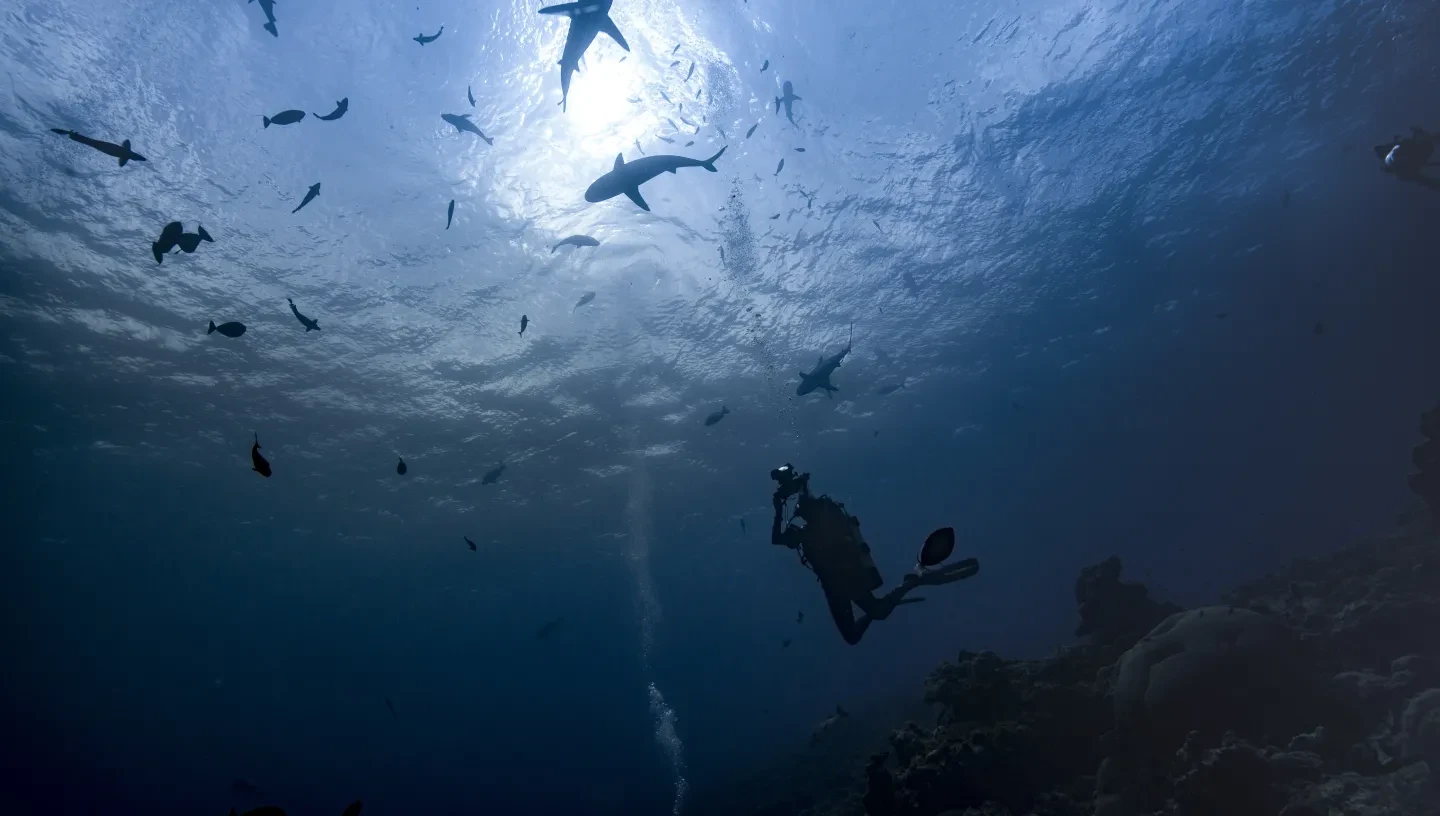
Making Waves
As told to Elizabeth Oliver, Digital Content Producer at Royal Museums Greenwich
Main image: Melissa Reid surfing at the ISA World Para Surfing Championships 2020 in La Jolla, California. Courtesy of Pablo Jimenez, International Surfing Association
